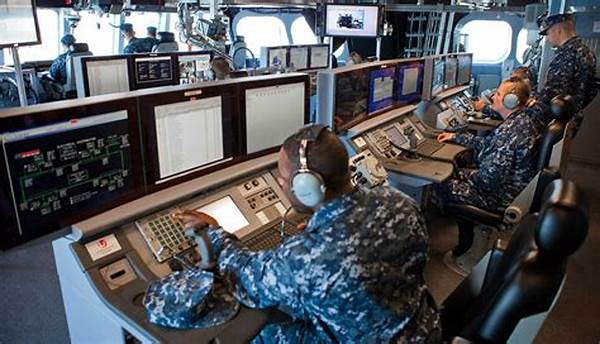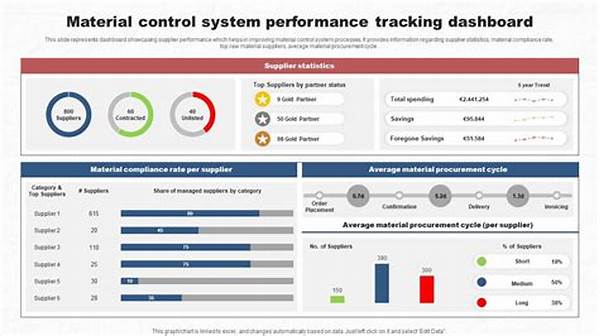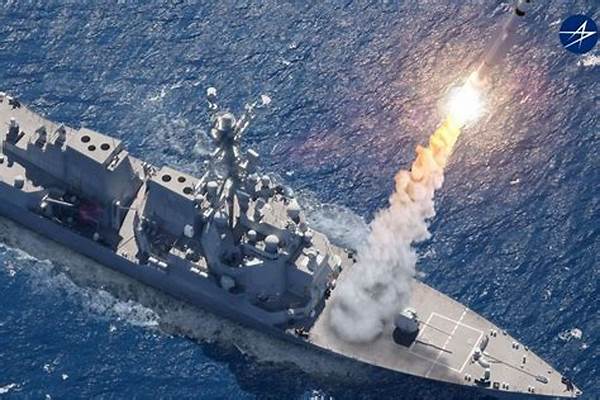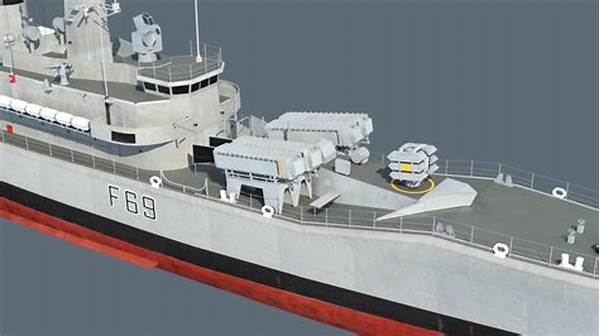In the world of maritime aviation, shipboard flight operation systems are the unsung heroes, ensuring that aircraft can safely take off and land on naval vessels. These systems are complex networks of technology and personnel working in harmony to overcome the challenges posed by the unpredictable nature of the sea. While the ocean might be a majestic sight, it’s a demanding stage for flight operations. Let’s dive into these intriguing systems and how they keep everything running smoothly on the high seas.
The Heartbeat of Aviation at Sea
Shipboard flight operation systems are vital to naval aviation. Imagine trying to land an aircraft on a moving ship; it sounds unreal, right? Well, these systems make it possible. They consist of cutting-edge navigational tools, communication networks, and highly trained personnel. Together, they work day and night to ensure that aircraft can come and go without a hitch. It’s like running an airport on water! The crew on board is trained rigorously to handle any situation, ensuring that even in stormy weather, the mission remains a go.
These systems are not just about tech; they’re about teamwork. Everyone on the ship plays a part in making sure that operations go without a glitch. From the radar operators to the deck crew, they all contribute to the smooth running of shipboard flight operation systems. And while we often highlight the pilots’ skills, it’s these systems and people that make sure the pilots can do their job safely.
In a nutshell, shipboard flight operation systems are the lifeline of naval aviation. They blend technology and human skill, overcoming the challenges of the open ocean and ensuring that navies around the world maintain their aerial edge. So next time you see an aircraft landing on a ship, know that there’s a whole world of technology and teamwork behind that one moment of precision.
Key Components of Shipboard Flight Operation Systems
1. Precision Navigation: This is where shipboard flight operation systems shine. Precision navigation tools keep aircraft on track, compensating for ship movements with pinpoint accuracy. These gadgets are like the James Bond of tech, ensuring every landing is spot on.
2. Radar Systems: Think of these like the all-seeing eyes on the ship. Radar is crucial in shipboard flight operation systems, tracking aircraft, keeping tabs on the weather, and making sure nothing sneaks up on them. It’s like having a lookout who never blinks.
3. Communication Networks: Keeping everyone in the loop is vital. Shipboard flight operation systems rely on rock-solid communication networks to coordinate between the ship, aircraft, and base. It’s like the group chat you can’t afford to miss!
4. Deck Operations: This is where the action happens. From signaling to securing the aircraft, deck operations are a fast-paced part of shipboard flight operation systems. It’s like a dance on a moving stage that never stops.
5. Personnel Training: You can’t run these systems without the right crew. Training is hardcore and never-ending. Shipboard flight operation systems demand that everyone knows their role inside out, ready for anything the sea throws their way.
The Challenge of Environment in Shipboard Flight Operation Systems
Operating at sea is no walk in the park. Shipboard flight operation systems must grapple with the ever-changing sea conditions. Picture this: you’re trying to land on a flight deck during a storm, and the ship is rocking like a rollercoaster. This is where the systems come into play, using advanced stabilization and weather monitoring to keep everything steady. The sea, with its moods and unpredictability, is the biggest test for shipboard flight operation systems.
Besides the harsh conditions, the systems need to be incredibly resilient. Out there, miles from land, maintenance and repairs must be swift. The crew becomes a jack-of-all-trades, handling everything from tech malfunctions to emergency landings. It’s an all-hands-on-deck scenario, showcasing the robustness of these systems and the adaptability of the human crew. The ever-present unpredictability demands constant vigilance and readiness, turning every operation into a demonstration of precision and skill.
Safety Measures in Shipboard Flight Operation Systems
Routine Checks and Balances
Safety is the name of the game. Shipboard flight operation systems integrate rigorous checks and balances. Everything is double-checked, from equipment inspections to flight schedules. It’s like the backstage crew making sure the show goes on without a hitch, every tiny detail matters.
Training Drills and Simulations
Never a dull moment with training drills! Shipboard flight operation systems place high importance on continuous training, ensuring the crew is sharp as a tack. Simulations mimic real-life scenarios, preparing everyone for worst-case situations. It’s like cramming for a never-ending exam, but way more thrilling.
Technology and Innovation in Shipboard Flight Operation Systems
Tech keeps evolving, and so do shipboard flight operation systems. Advanced sensors, AI integration, and improved user interfaces are making waves. These innovations make operations more intuitive and safe, ensuring that the crew can focus more on the mission and less on technical hitches. Imagine having an AI co-pilot that computes data faster than you can say “ship ahoy”!
Emergency Protocols
If something goes south, shipboard flight operation systems have robust emergency protocols in place. Life-saving measures are drilled regularly, and everyone knows their escape route. It’s like knowing you’re in safe hands because everyone’s got each other’s back in a pinch.
Constant Monitoring and Feedback
Surveillance and feedback loops keep shipboard flight operation systems running smoothly. Constant monitoring catches anomalies before they become big problems. Think of it like having a fitness tracker for the ship’s operational health, always keeping it in tip-top shape.
The Future of Shipboard Flight Operation Systems
Fasten your seatbelts; shipboard flight operation systems are heading for the future. With tech advancing leaps and bounds, these systems are set to get smarter. Imagine AI-assisted navigation or virtual reality training modules. The goal? To make operations faster, safer, and more reliable. The future is bright and full of possibilities.
The integration of IoT (Internet of Things) is another exciting prospect. It promises enhanced connectivity, making every part of the system talk to each other seamlessly. From real-time weather updates to automated maintenance alerts, the future of shipboard flight operation systems is promising a revolution in how we perceive naval aviation.
Shipboard flight operation systems are not just a marvel of engineering but a testament to human ingenuity. With technology constantly advancing, these systems are becoming more sophisticated, ensuring superior safety and efficiency for naval operations worldwide.
In conclusion, shipboard flight operation systems are at the forefront of maritime aviation. They blend technology, human skill, and a touch of innovation to operate flawlessly in one of the most challenging environments on Earth. As technologies evolve, these systems are set to become even more advanced, paving the way for a new era in naval flight operations.




